The "2025 U.S.-China Forum on Aging and Dementia", co-hosted by the Institute for Global Health and Development of Peking University, the National Committee on U.S.-China Relations, and the Yale School of Public Health, and co-organized by the Chinese Hospital Association and the Yale-China Association, was successfully held at the Yale School of Public Health in the United States from 8:30 to 13:00 (Eastern Time) on July 10, 2025. As an important extended activity of the "U.S.-China Track II Dialogue on Health" series, this forum focused on the global challenges and cooperation opportunities in the prevention and treatment of dementia against the backdrop of a longevity society. Top experts and scholars from China and the United States conducted in-depth discussions on issues such as dementia prevention, precise diagnosis, digital medical innovation, and the construction of clinical care systems. Professor Liu Guoen, Dean of the Institute for Global Health and Development of Peking University, Member of the Academic Division of the Chinese Academy of Medical Sciences, and Chinese Convenor of the "U.S.-China Track II Dialogue on Health", and Professor Megan Ranney, Dean of the Yale School of Public Health and Member of the National Academy of Medicine, delivered welcome speeches at the opening ceremony. The forum attracted nearly 200 participants from all walks of life in China and the United States, building a good communication platform for promoting Sino-U.S. relations and cooperation in global cognitive health research.
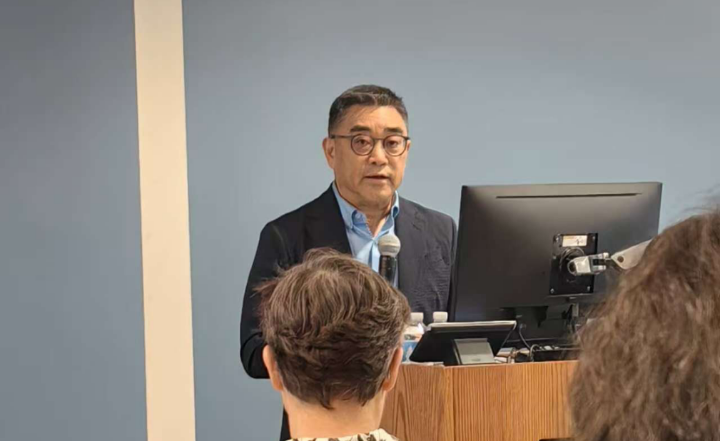
Speech by Gordon G. Liu, Dean of the Institute for Global Health and Development of Peking University and Changjiang Scholar Distinguished Professor at the National School of Development of Peking University
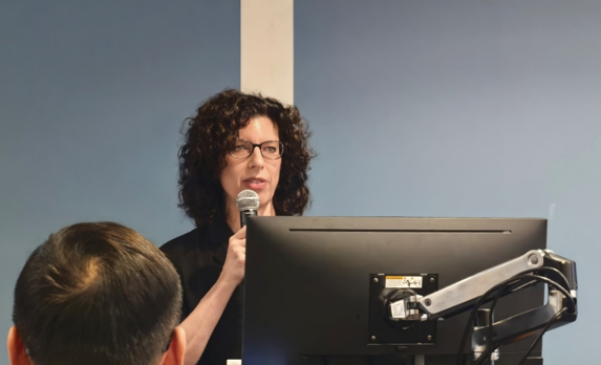
Address by Professor Megan Ranney, Dean of the Yale School of Public Health and Member of the National Academy of Medicine
Professor Harlan Krumholz, the Harold H. Hines, Jr. Professor of Medicine at the Yale School of Medicine and Editor-in-Chief of the Journal of the American College of Cardiology (JACC), hosted the keynote speech session. He pointed out that despite the many global challenges currently faced, health has always been one of the most constructive and potential-rich areas in Sino-US cooperation. Especially in dealing with the global problem of population aging and cognitive decline, the prospects for cooperation between the two sides are broad. Professor Krumholz noted that compared with the traditional concept of "dementia", "cognitive health" places more emphasis on respect for the dignity and quality of life of the elderly, reflecting a transformation and progress in health concepts. He emphasized that China and the United States possess world-leading scientific research capabilities and clinical resources, and should, based on data sharing and value co-creation, deepen cooperation in areas such as brain health risk assessment, biomarker development, and optimization of the care system to jointly address common challenges. "We should not only work together to make scientific discoveries, but also jointly create a people-oriented health ecosystem for the future." He called on the on-site experts to take this opportunity to carry out in-depth exchanges across disciplines, institutions, and national boundaries.
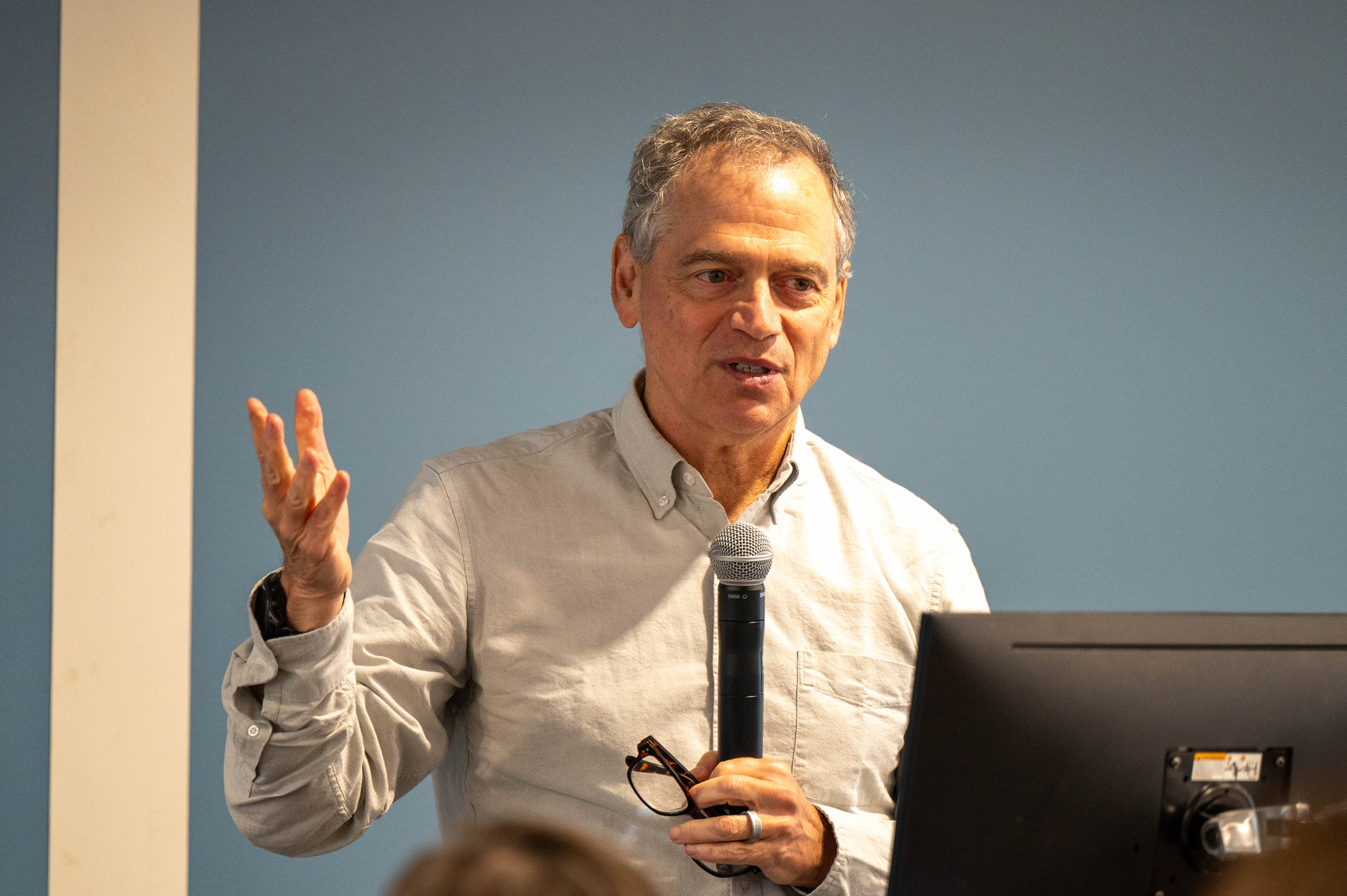
Dr. Harlan Krumholz, Endowed Professor of Cardiology at the Yale School of Medicine, presided over the keynote speech session.
Professor Mark McClellan, Endowed Professor at Duke University and former Commissioner of the U.S. Food and Drug Administration (FDA), pointed out that with the dramatic changes in the global population structure, brain health issues have become increasingly prominent. Citing a study in *The Lancet* indicating that 40% of dementia cases are preventable, he emphasized that controlling risk factors (such as hearing loss, inadequate education, and social isolation) can significantly delay the onset of dementia at the population level. He specifically noted that the rapid development of artificial intelligence, biomarkers, and digital health technologies has provided unprecedented possibilities for achieving more cost-effective and efficient individualized prevention and intervention. Professor McClellan called for the establishment of cross-border data platforms, promotion of standardized clinical trial processes and the development of intelligent auxiliary diagnosis and treatment systems, and facilitation of synergistic interaction among technological innovation, regulatory policies, and payment mechanisms. He stressed that the success of future brain health interventions will hinge on the realization of data sharing, multilateral trust, and systematic investment.
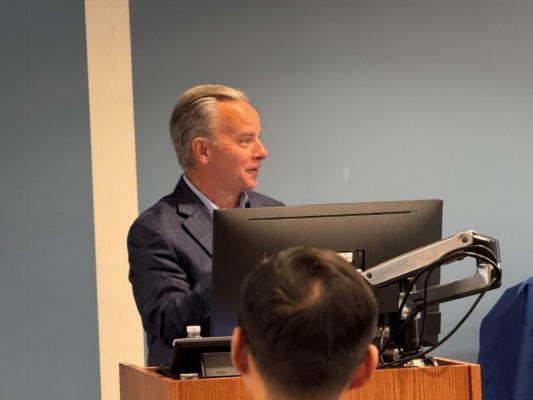
Endowed Professor at Duke University and former Commissioner of the U.S. Food and Drug Administration (FDA), Professor Mark McClellan delivered a keynote speech.
Professor Tang Yi, Executive Vice President of Xuanwu Hospital of Capital Medical University and Executive Deputy Director of the National Medical Center for Neurological Diseases, shared the latest progress of China in digital cognitive healthcare. He introduced the AI-assisted cognitive screening system developed by his team, which can replace traditional scales (such as MOCA) in community and remote scenarios, improving screening efficiency and accessibility. He also pointed out that central auditory dysfunction, as an early signal of dementia, deserves to be included in the early screening system. At the intervention level, Professor Tang Yi presented the preliminary effectiveness trial of transcranial alternating current stimulation in mild Alzheimer's disease, and called for accelerating the construction of standardized pathways for digital therapeutics, including regulatory approval, medical insurance coverage, and ethical frameworks. He emphasized that digital healthcare is a new frontier in cognitive health, which also needs to be promoted in conjunction with research on neural mechanisms and industrialization pathways.
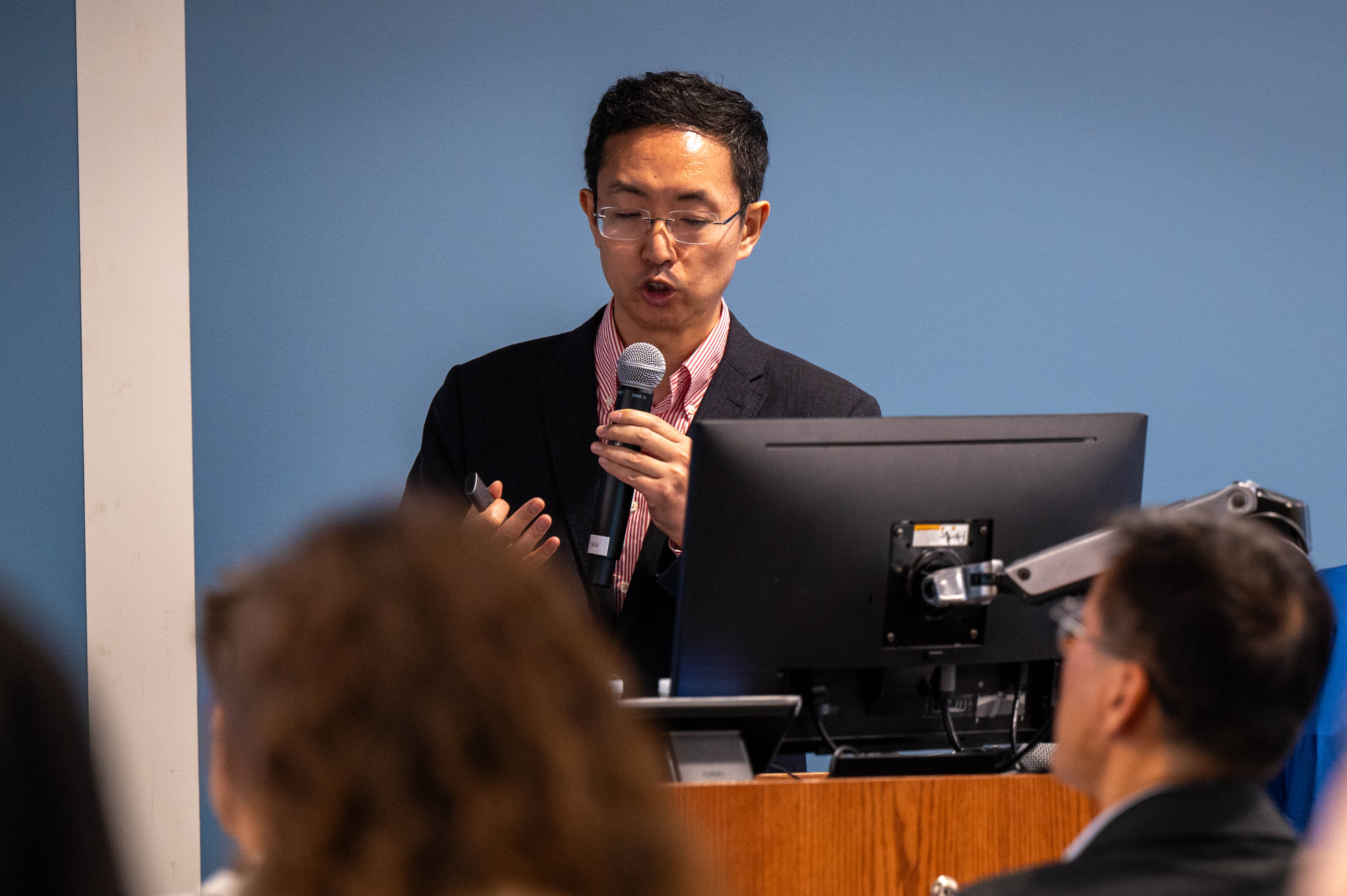
Professor Tang Yi, Executive Vice President of Xuanwu Hospital of Capital Medical University and Executive Deputy Director of the National Medical Center for Neurological Diseases, delivered a keynote speech.
Joan Monin, Associate Professor at the Yale School of Public Health, proposed that interventions for dementia should not be limited to the biomedical level; instead, they need to better understand the emotional, relational, and social experiences of both caregivers and patients. She introduced the "Dementia-Positive" intervention program carried out in collaboration with the Live Well organization, emphasizing the reshaping of patients' sense of life participation through art, the reconstruction of intimate relationships, robot companionship, and other means. Professor Monin stressed that co-creative research should become the new norm, where patients, their families, and communities jointly participate in designing care models to enhance the acceptability and cultural sensitivity of interventions. She pointed out that a value system of "care ethics" and "human-centered care" should be embedded in everything from policy design to service delivery.
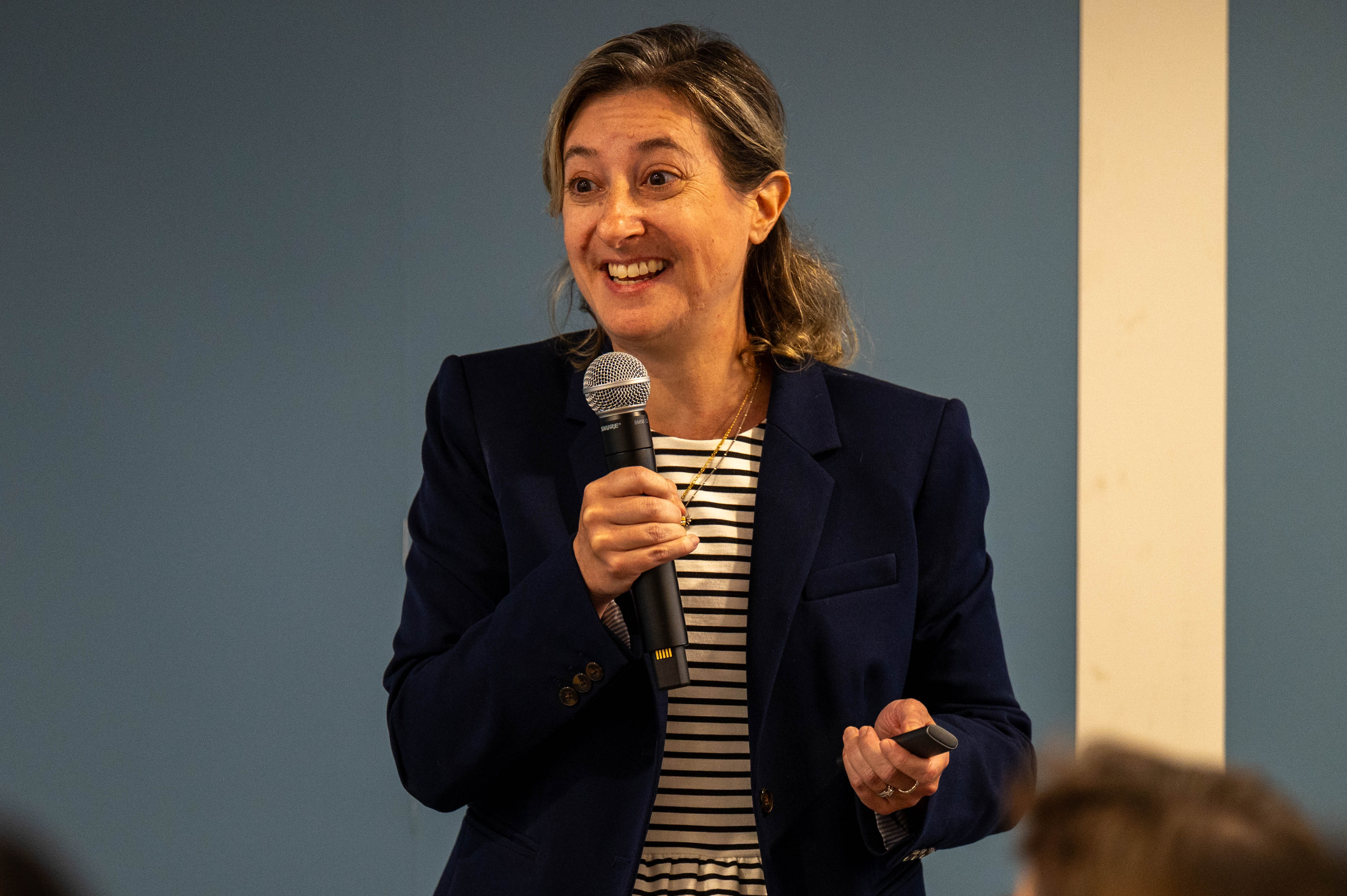
Joan Monin, Associate Professor at the Yale School of Public Health, delivered a keynote speech.
Professor Ula Hwang, a dual-appointed professor at New York University and Yale University and an expert in geriatric emergency medicine, emphasized in her speech that dementia patients frequently visit emergency departments, yet the rates of identification, intervention, and follow-up remain severely inadequate. She introduced the "Geriatric Emergency Department Accreditation" (GEDA) program, which promotes the deployment of dedicated Geriatric Emergency Medicine (GEM) nurses in emergency departments to conduct functional assessments, fall screenings, and medication optimization. Professor Hwang proposed that emergency rooms should serve as a bridge between the healthcare system and community care, enabling an integrated care model that connects "acute care—chronic care—home care". She stressed that through cross-departmental collaboration, reform of payment systems, and the introduction of intelligent assessment tools, emergency departments can become key nodes for the early identification and referral of elderly dementia patients.
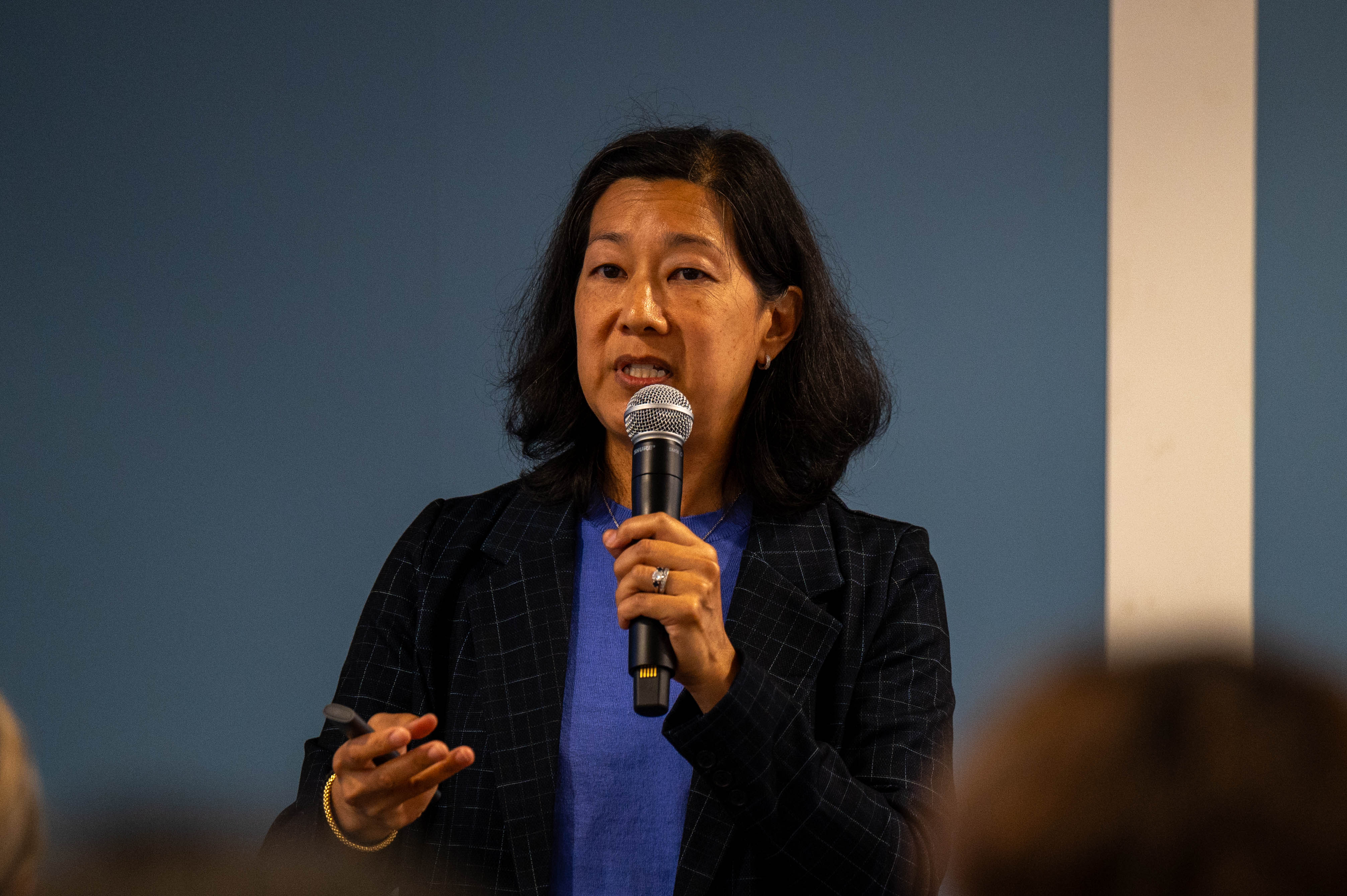
Professor Ula Hwang, a dual-appointed professor at New York University and Yale University and an expert in geriatric emergency medicine, delivered a keynote speech.
Professor Liu Xiuyun, Endowed Professor at Tianjin University, Deputy Director of the Medical Department, and Dean of the School of Pharmacy, pointed out that the burden of neurodegenerative diseases continues to rise, and brain health has been elevated to a national strategy. She advocated for redefining brain diseases from the perspective of "dysfunction," covering multiple dimensions such as cognition, mental state, and movement, thereby promoting a research system that spans diseases, disciplines, and the life cycle. She introduced her team's progress in establishing animal models of brain dysfunction, screening biomarkers, developing drugs, and analyzing mechanisms. She also called for strengthening in-depth Sino-US cooperation in the verification of early screening technologies, multi-center clinical trial platforms, and translational research. Professor Liu noted that brain health is not only a medical issue but also a reflection of social structures and service systems. "We should not only treat 'brain diseases' but also protect 'brain function,' ensuring that people 'live long' and 'live well.'"
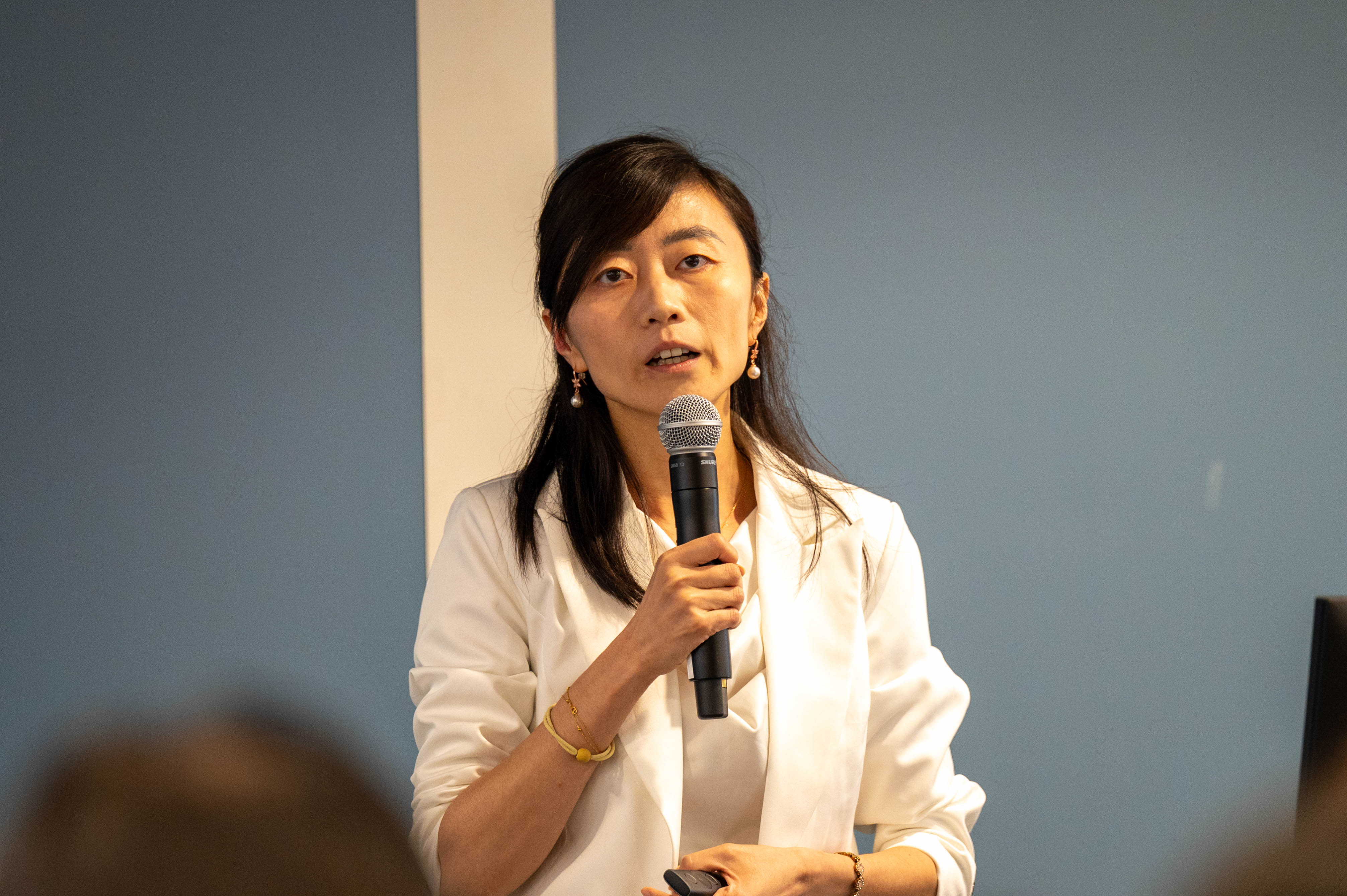
Professor Liu Xiuyun, Endowed Professor at Tianjin University, Deputy Director of the Medical Department, and Dean of the School of Pharmacy, delivered a keynote speech.
Following the keynote speeches, participating experts engaged in roundtable discussions. Gong Peng, Vice-Chancellor of the University of Hong Kong and Endowed Professor of Global Sustainable Development, chaired the first roundtable discussion, which focused on the theme of "R&D Investment in Medical Innovation". Professor Gong pointed out that the identification, diagnosis, understanding, and prevention of diseases cannot be achieved without the support of scientific research. To realize precise diagnosis, drug development, and effective therapeutic interventions, it is essential to rely on advanced technologies and sophisticated instruments and equipment. For these goals to be realized, corresponding funding input and policy support systems must be matched throughout the entire medical innovation chain.
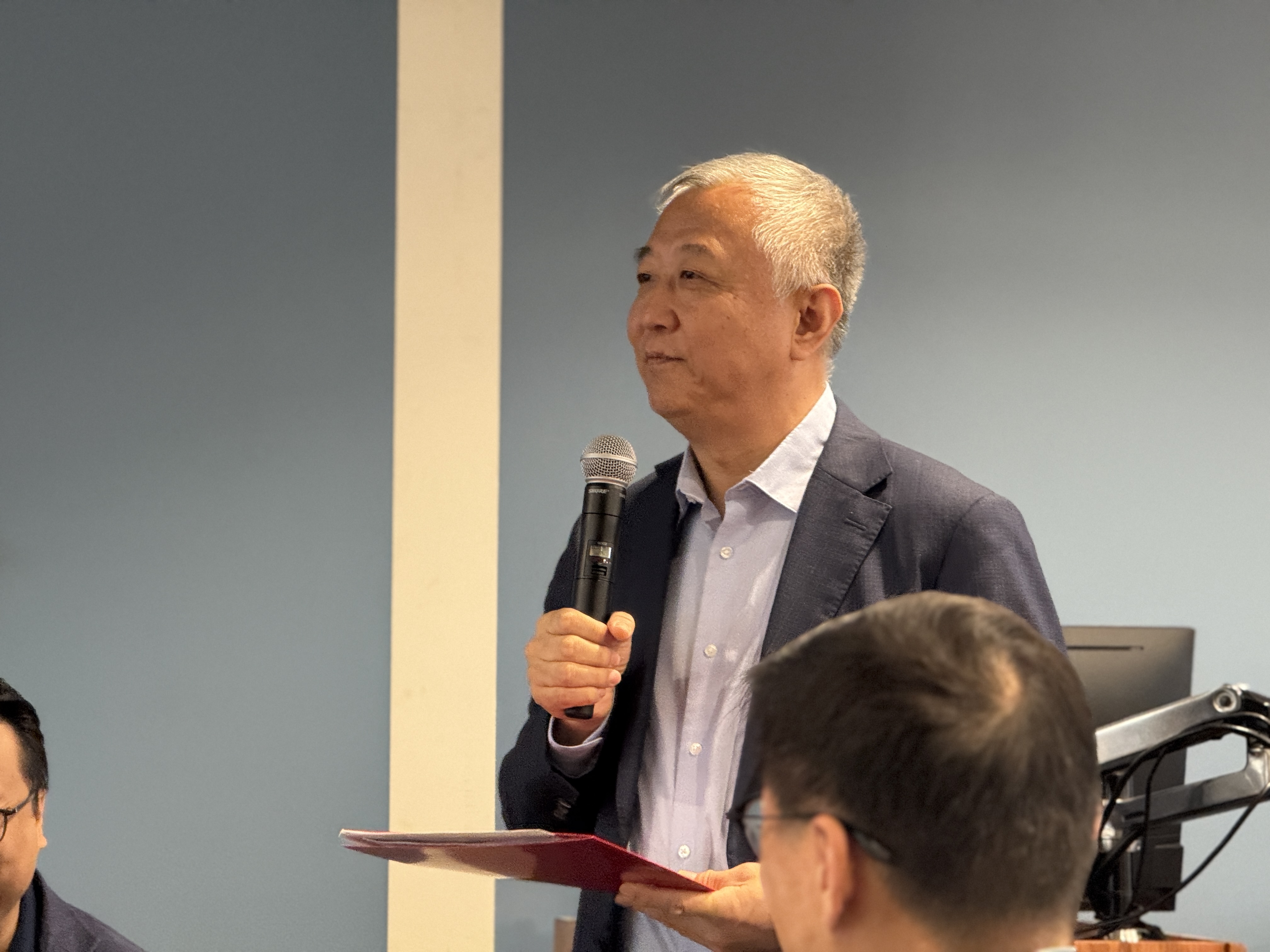
Gong Peng, Vice-Chancellor of the University of Hong Kong and Endowed Professor of Global Sustainable Development, chaired the first roundtable discussion.
In the roundtable discussion, Ye Yuxiang (Kevin Ye), Chairman of Shenzhen Salubris Pharmaceuticals Co., Ltd., emphasized that China and the United States should deepen collaboration to jointly lead the development of global healthcare. He pointed out that China's pharmaceutical industry has achieved leapfrog development in recent years: starting from the launch of the drug review and approval system reform in 2015, to the official accession to the International Council for Harmonisation of Technical Requirements for Pharmaceuticals for Human Use (ICH) in 2017, China's pharmaceutical innovation ecosystem has been gradually improved. Data shows that between 2015 and 2024, among the first-in-class innovative drugs approved for marketing in China, the proportion of those developed by local enterprises has significantly increased from less than 10% to 42%, demonstrating the rapid leap in innovation capabilities. At the same time, Kevin also pointed out that China's pharmaceutical industry is still in the growth stage in terms of industrialization capacity, and there is an urgent need to carry out in-depth cooperation with developed countries such as the United States to accelerate the transformation of scientific research results into clinical applications. He expressed full confidence in China's innovation prospects, but at the same time called for international cooperation for breakthroughs in global healthcare, stating that only through China-U.S. collaboration can we truly benefit patients worldwide.
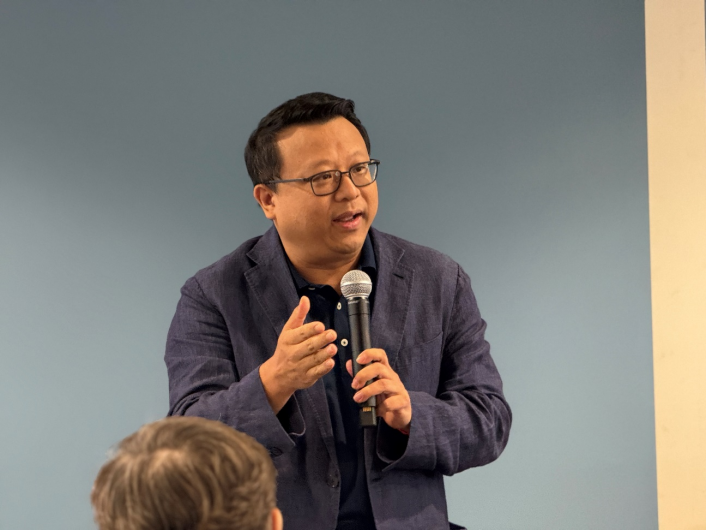
Remarks by Ye Yuxiang (Kevin Ye), Chairman of Shenzhen Salubris Pharmaceuticals Co., Ltd.
Professor Shang Huifang, Deputy Director of the Department of Neurology at West China Hospital of Sichuan University, pointed out that currently approved drugs for Alzheimer's disease can only relieve symptoms to a limited extent, failing to meet the treatment expectations of patients and clinical practice. Moreover, their high costs have restricted widespread application. She emphasized that insufficient understanding of the pathogenic mechanisms is a key bottleneck hindering breakthroughs in treatment. Basic researchers and clinicians from China and the United States urgently need to deepen collaboration to jointly explore the disease's pathogenesis, laying a scientific foundation for developing more effective treatment strategies. As a frontline clinical expert, Professor Shang noted that in the context of the lack of effective acute intervention methods, strengthening prevention is crucial. She further introduced the *National Action Plan for the Prevention and Treatment of Alzheimer's Disease (2024–2030)*, jointly issued by 15 ministries and commissions including the National Health Commission of China in 2024. This plan aims to enhance public awareness and education about the disease, promote elderly cognitive function screening, and build a full-cycle management system for diagnosis, treatment, and rehabilitation, with initial effects already visible. Looking to the future, Professor Shang Huifang emphasized that China is playing an increasingly important role in the prevention and treatment of Alzheimer's disease. China and the United States should carry out substantive cooperation in etiological research, preventive intervention, diagnosis and treatment technologies, etc., to bring new hope to Alzheimer's disease patients worldwide.
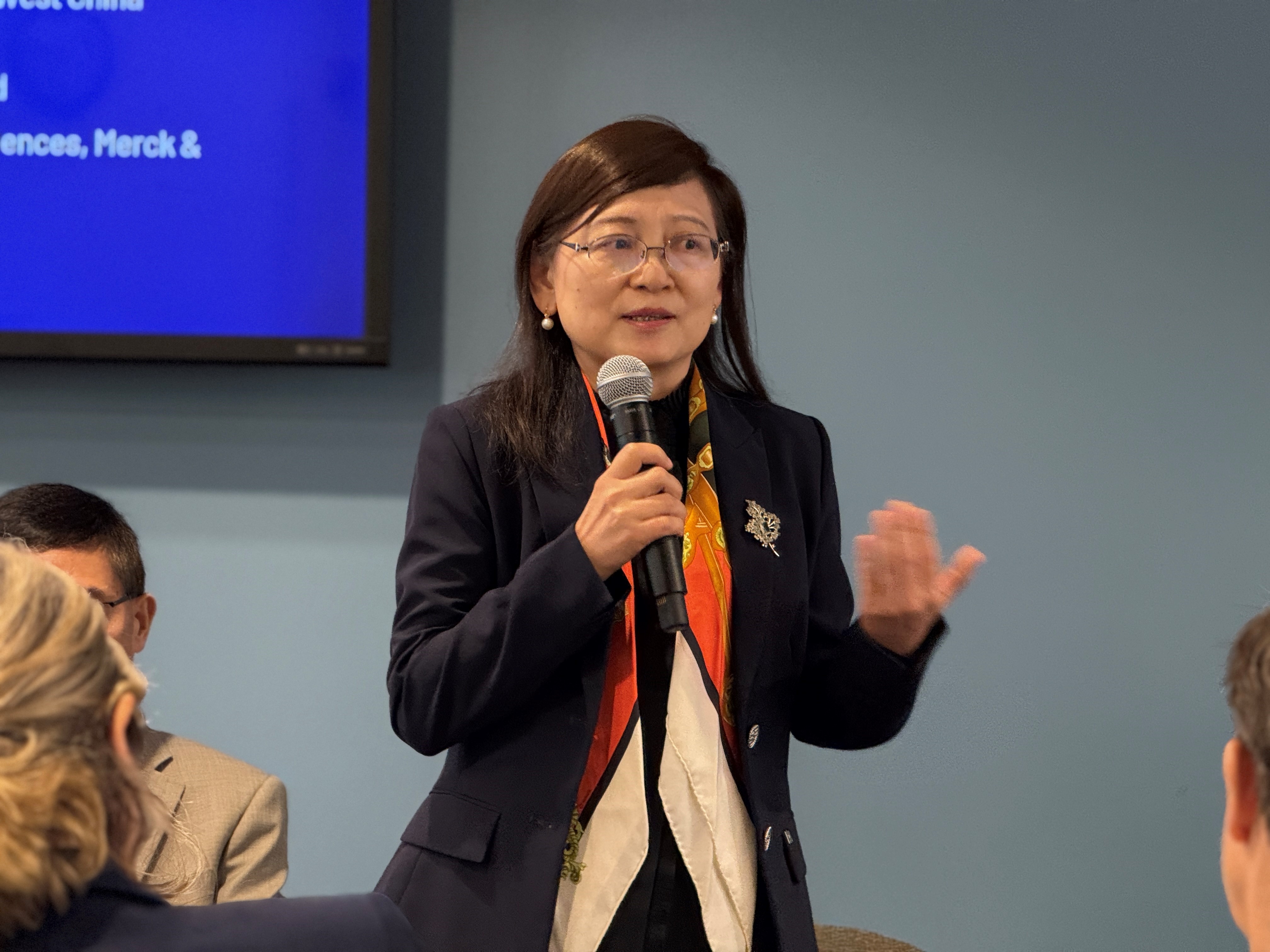
Remarks by Professor Shang Huifang, Deputy Director of the Department of Neurology at West China Hospital of Sichuan University
Dr. Donald D. Yin, Vice President of Global Health Economics and Decision Sciences at Merck & Co., Inc., stated that the current global investment in research and development (R&D) within the biopharmaceutical industry is substantial. In 2021, the total global R&D investment in the biopharmaceutical sector reached as high as $276 billion, with approximately 55% contributed by companies headquartered in the United States, around 29% by European enterprises, and about 15% by companies in the Asia-Pacific region.Despite the rapid development of the biotech industry in recent years, Dr. Yin pointed out that global R&D as a whole is facing multiple challenges, including diminishing R&D output and a continuous decline in internal rates of return. This is particularly evident in the field of aging-related diseases, represented by Alzheimer's disease. Currently, there are over 80 drugs in global clinical development for the prevention and treatment of Alzheimer's disease, but most of them will ultimately fail to obtain regulatory approval. He also noted that innovative drug R&D in the United States will continue to face challenges in the coming years, spanning multiple aspects such as clinical development, market access, drug pricing, and medical insurance payment. Dr. Yin emphasized that biopharmaceutical R&D is essentially a global public good, but the current global sharing of R&D costs is severely imbalanced: the United States bears approximately two-thirds of the global R&D costs, while other OECD countries collectively contribute about one-fourth to one-third. He believes that China can actively seek opportunities for institutional innovation, explore ways to more effectively incentivize its domestic biopharmaceutical enterprises, and better share the responsibilities and costs of global biopharmaceutical R&D.
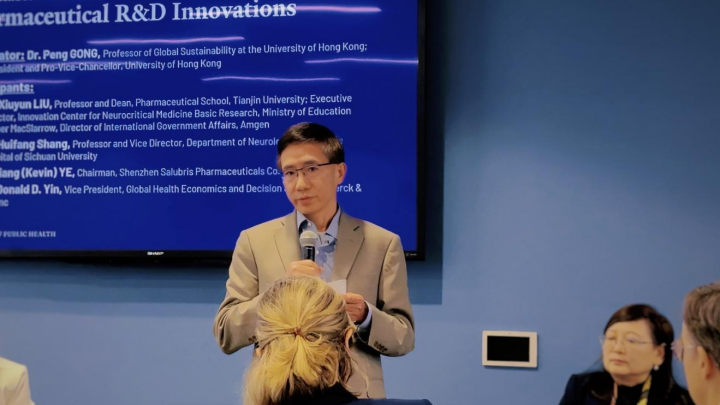
Remarks by Dr. Donald D. Yin, Vice President of Global Health Economics and Decision Sciences at Merck & Co., Inc.
Professor Liu Xiuyun, Deputy Director of the Medical Department and Dean of the School of Pharmacy at Tianjin University, further elaborated on her views. She pointed out that in the next five to ten years, the field of brain health will face a huge patient population, including the growing number of Alzheimer's disease patients against the backdrop of aging, adolescents who have long been under psychological pressure, and people with neurological diseases such as stroke. Brain health will become a key area requiring significant investment in public health and technological innovation. In terms of investment targets, Professor Liu suggested focusing on basic researchers, start-ups, scientific research institutions, and interdisciplinary collaboration platforms, with special emphasis on promoting in-depth integration between universities and clinical institutions. Taking local practices as an example, she advocated for the establishment of research funding mechanisms with cooperation requirements, such as encouraging project applicants to come from both universities and hospitals, so as to institutionally promote the synergy between scientific research and clinical practice and improve the efficiency of clinical transformation of research results. In addition, Professor Liu emphasized that efforts should be made to accelerate the training of interdisciplinary talents, especially young scientific research forces with composite backgrounds in medicine, engineering, artificial intelligence, etc., to build a sustainable innovation ecosystem for brain health. In the summary of the roundtable discussion, Professor Gong pointed out that there is a significant gap in scientific research investment between China and the United States: the budget of the National Natural Science Foundation of China for 2025 is about 60 billion yuan, with life science-related projects accounting for less than 15%; the annual allocation of the Ministry of Science and Technology is about 20 billion yuan. In contrast, the annual budget of the U.S. National Science Foundation (NSF) is about 8 billion U.S. dollars, and that of the U.S. National Institutes of Health (NIH) is as high as 40 billion U.S. dollars. Nevertheless, local governments in China have attached great importance to biotechnology in recent years, listing it as a key investment area and actively promoting related scientific research and innovation projects. Professor Gong called on China and the United States to strengthen cooperation and play a leading role in global healthcare innovation. The second roundtable discussion was chaired by Dr. Xi Chen, Associate Professor at the Yale School of Public Health and Visiting Professor at the Peking University Institute for Global Health. The discussion focused on how to improve the lives of Alzheimer's disease patients and their caregivers, exploring ways to enhance the quality of life of Alzheimer's disease patients and their caregivers through socioeconomic and health interventions, and promoting interdisciplinary cooperation and policy formulation. Professor Heather Allore from the Yale Alzheimer's Disease Research Center, from the perspective of a data analyst, pointed out that the unsatisfactory data and conclusions obtained from most trials on Alzheimer's disease stem from the difficulty in recruitment; and the recruitment problem is further caused by the fact that trial designs are divorced from the actual situation of patients, failing to consider burdens such as access convenience and health literacy. She suggested incorporating the perspectives of patients and caregivers in the early stage of design, focusing on their actual needs in terms of functionality and life independence, so as to improve the efficiency of resource allocation and the effect of trials.
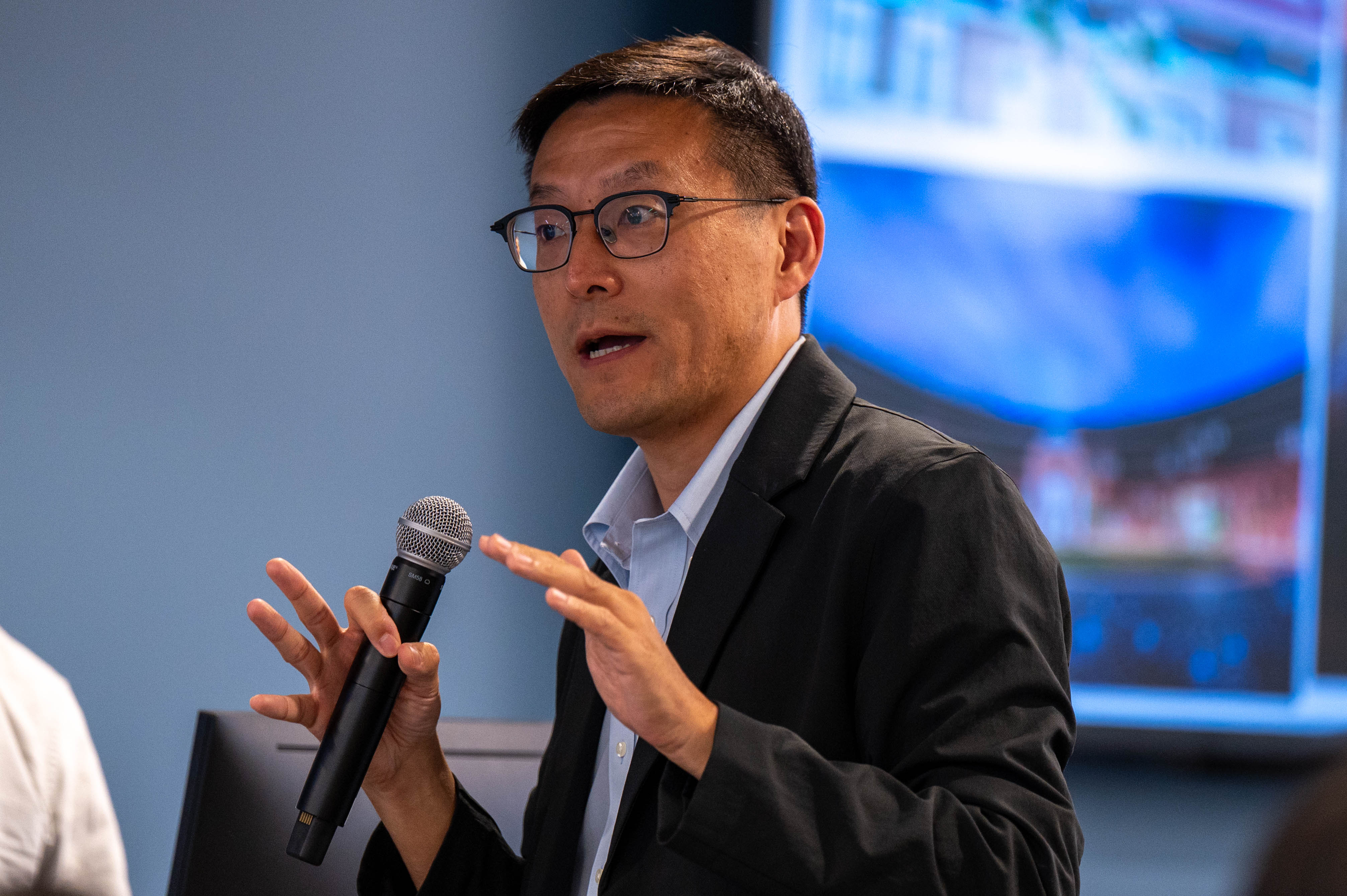
Dr. Chen Xi, Associate Professor at the Yale School of Public Health, chaired the second roundtable discussion.
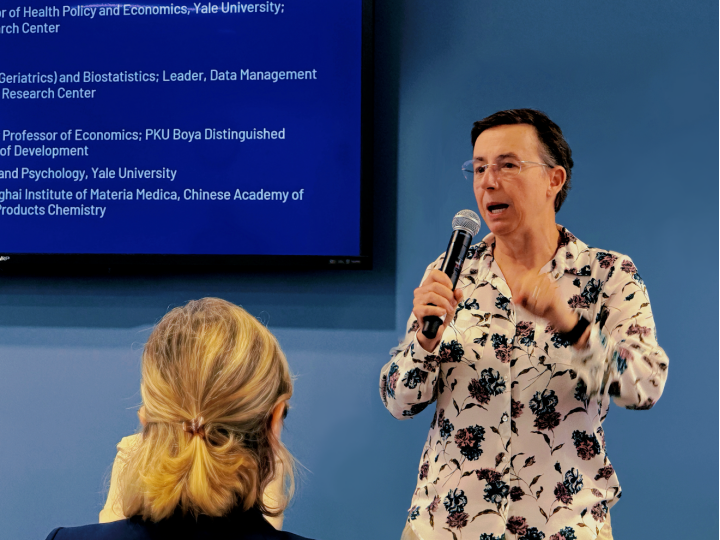
Remarks by Professor Heather Allore from the Yale Alzheimer's Disease Research Center
Heidi Gill, Chief Strategy Officer of the "LiveWell" organization, introduced the three-tier framework of LiveWell, which aims to remove obstacles and provide planning for the lives of Alzheimer's disease patients. The framework, "Friendly, Capable, Positive", corresponds to popularizing the concept of "brain health", creating a comfortable and inclusive environment to promote communication among patients, and endowing and strengthening patients' individual self-esteem and sense of participation respectively. She shared the concept of "resilient living", which means integrating medical treatment with life, encouraging patients' social interaction, and improving the medical environment and experience complement each other.
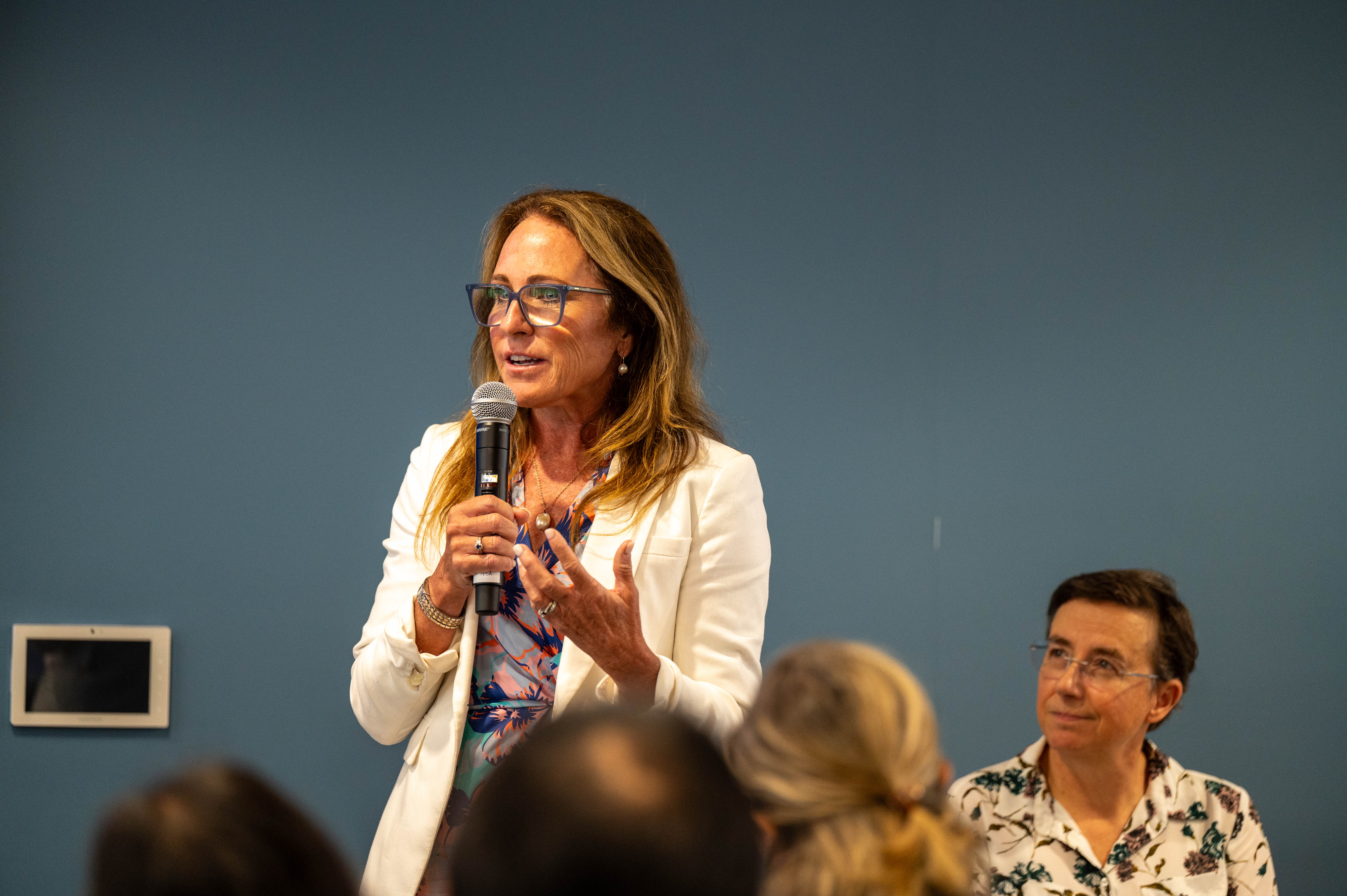
Remarks by Heidi Gill, Chief Strategy Officer of the "LiveWell" organization
Professor Lei Xiaoyan, Changjiang Scholar Distinguished Professor of Economics at the National School of Development, Peking University, pointed out in her report that based on a long-term survey spanning over 20 years in China, the five-tier progressive structure of "physical health—mental health—social health—self-esteem—self-actualization" constructed for the health needs of the elderly shows that the satisfaction rate of once lower-level needs has significantly improved, but the progress in the satisfaction rate of higher-level needs is slow. The integration of emerging technologies such as AI has mainly improved the fulfillment of lower-level needs, while there is still room for intervention in higher-level needs.
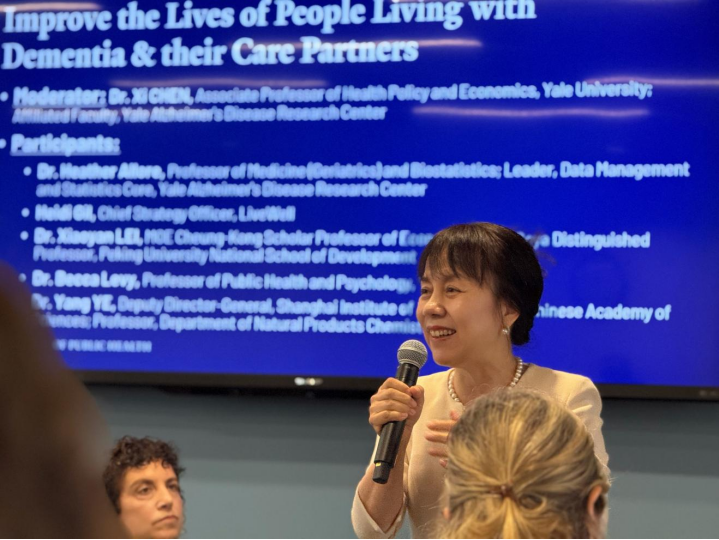
Remarks by Professor Lei Xiaoyan, Changjiang Scholar Distinguished Professor of Economics at the National School of Development, Peking University
Professor Becca Levy, a professor of public health and psychology at Yale University, shared insights into how a culture of positive aging among older adults might help with Alzheimer's disease. By comparing the aging cultures of China and the United States—where the former is positive and the latter tends to be negative—she extended the discussion to research on the relationship between older adults' attitudes toward aging and their risk of developing Alzheimer's disease. Her research indicates that embracing positive concepts such as respecting the elderly and active aging is negatively correlated with the risk of Alzheimer's disease. Even among individuals carrying genes that increase the risk of the disease, those who have internalized cultural beliefs in positive aging can reduce their risk to the level of those without the risk genes. It is suggested that we can draw on the positive aging cultures in East Asia and strengthen society's positive attitudes toward older adults through national and community education.
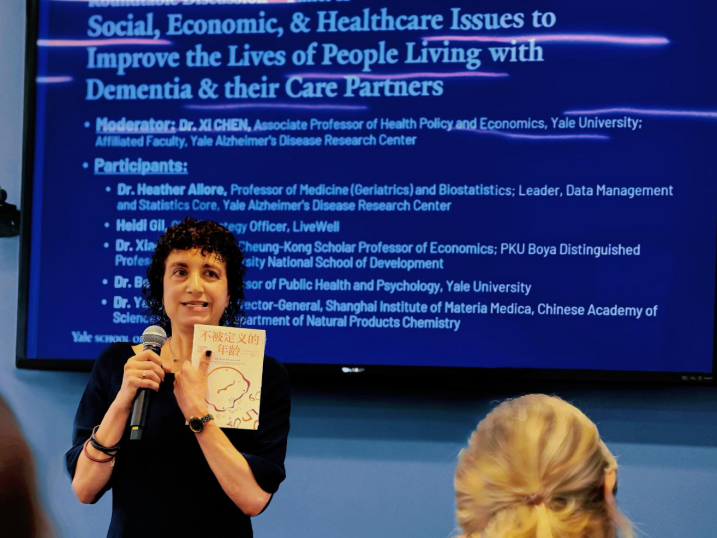
Remarks by Professor Becca Levy, Professor of Public Health and Psychology at Yale University
Professor Xu Anlong, Dean of the Hong Kong Institute for Advanced Study at Sun Yat-sen University, pointed out in his comment speech that human aging and memory decline are both manifestations of the deterioration of life's material metabolism and energy transfer. For such complex pathological processes, it is necessary to integrate all possible methods for systematic intervention and improvement. Traditional Chinese medicine (TCM), especially the integrated treatment of TCM and Western medicine, has accumulated rich clinical experience in the treatment and improvement of such diseases. This knowledge accumulation, with its unique Chinese characteristics, is worthy of exchange, mutual learning, and therapy sharing in China-U.S. health cooperation. He expressed the hope that experts in this field will participate in China-U.S. health academic exchanges in the future.
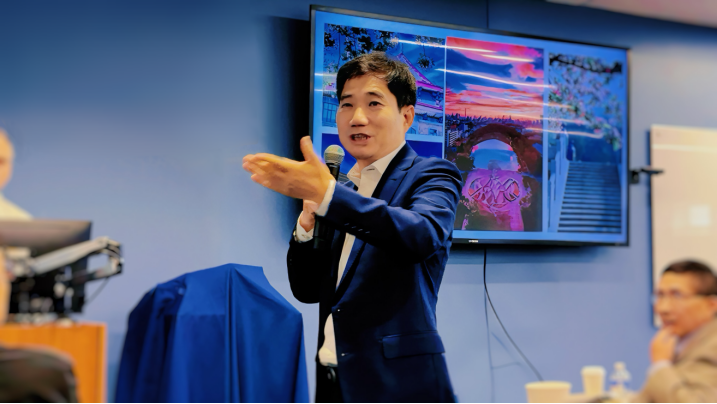
Comments by Professor Xu Anlong, Dean of the Hong Kong Institute for Advanced Study at Sun Yat-sen University
The participating experts conducted in-depth discussions and exchanges on key issues such as subject recruitment and trial design. They emphasized that incorporating the voices of patients and caregivers in the research design stage and focusing on functional needs will help break down the barriers between scientific research and real-life experiences. The experts agreed that the prevention of Alzheimer's disease should start as early as possible. Health education for the public should take individuals as the starting point and combine with community mobilization mechanisms to promote the popularization of preventive concepts. At the same time, enhancing brain health awareness and dialogue across age groups is conducive to building a brain health promotion system with full public participation, which is an effective path to promote the formation of social consensus.
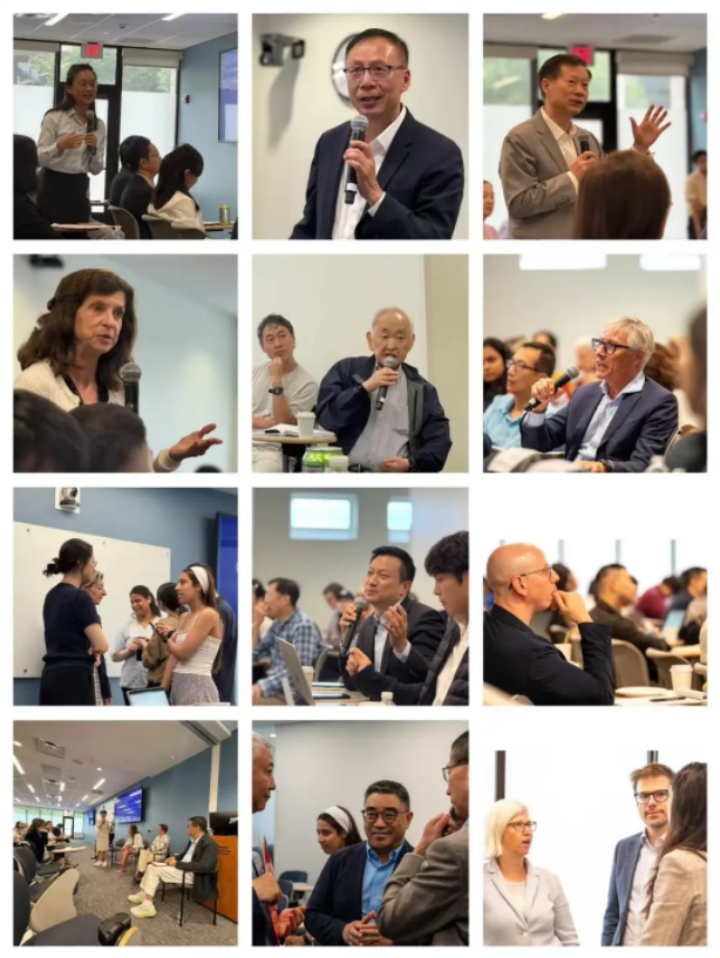
Discussions and exchanges among participating experts and guests
In his closing speech at the forum, Gu Dongfeng, academician of the Chinese Academy of Sciences, chair professor at Southern University of Science and Technology, and professor at Peking Union Medical College, Chinese Academy of Medical Sciences, expressed gratitude to all guests and organizations that organized and participated in this dialogue. He pointed out that China still needs to deepen its understanding of dementia prevention and emphasized the potential for China-US cooperation. Di Wu, Director of the Medical Program at the Yale-China Association, put forward from a perspective of humanistic care that relevant policies should pay more attention to safeguarding the dignity and existential value of the elderly. In his concluding remarks, Professor Liu Guoen called on Chinese and American experts to actively promote the cooperation mechanism for global health research, advance the integrated development of public health and Alzheimer's disease research, encourage cross-border and interdisciplinary research cooperation, and strengthen data sharing and practical innovation in the fields of aging, health, and technology.
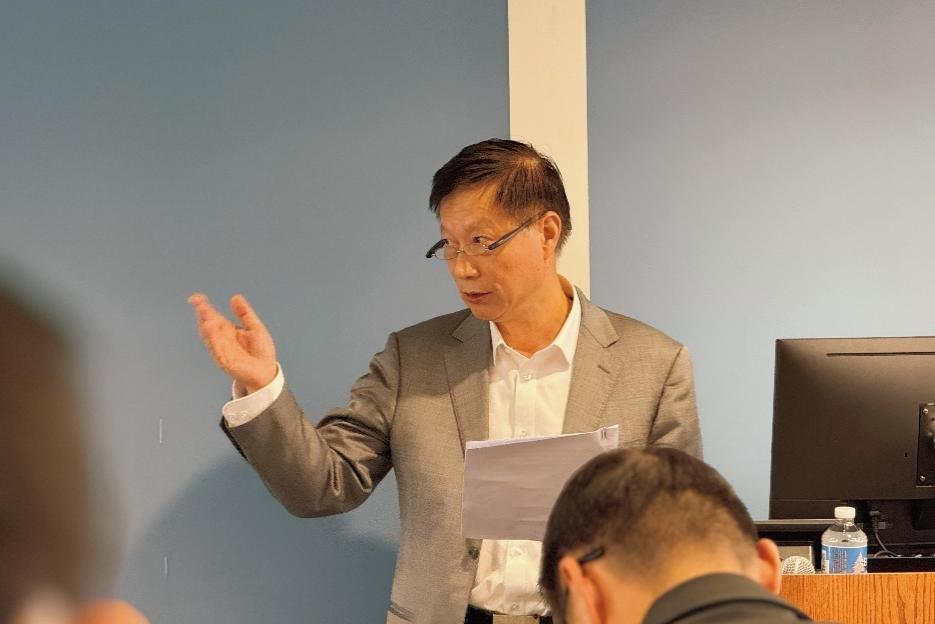
Gu Dongfeng, academician of the Chinese Academy of Sciences, chair professor at Southern University of Science and Technology, and professor at Peking Union Medical College, Chinese Academy of Medical Sciences, delivered the closing speech.
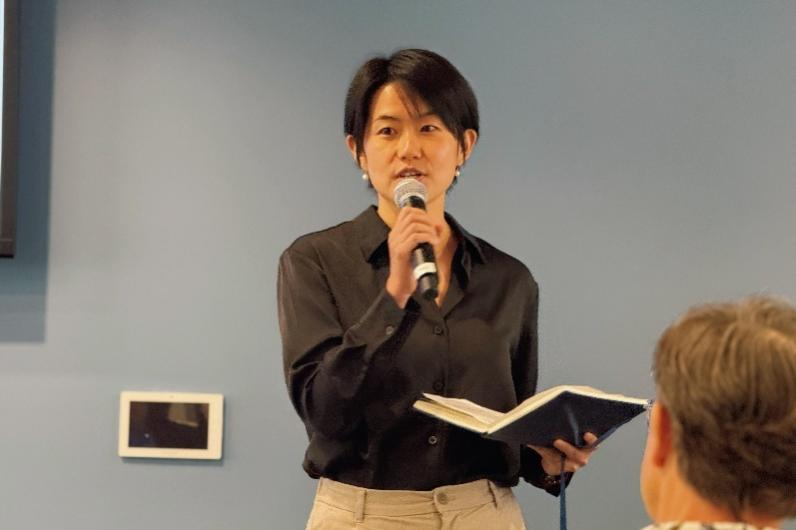
Di Wu, Director of the Medical Program at the Yale-China Association, delivered the closing remarks.
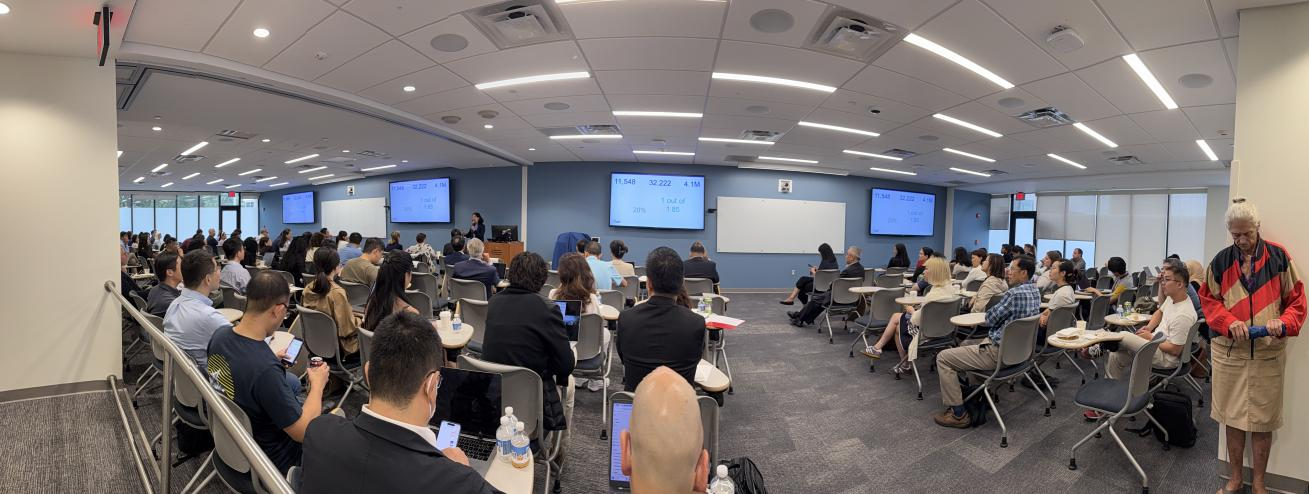
The forum site
(Text by: Wang Yi, Liang Junting, Qian Yuting, Ye Shuyi, Sun Ruochen, Hudson Chen. Pictures by: Xu Yichu, Bai Jing, Ye Shuyi)